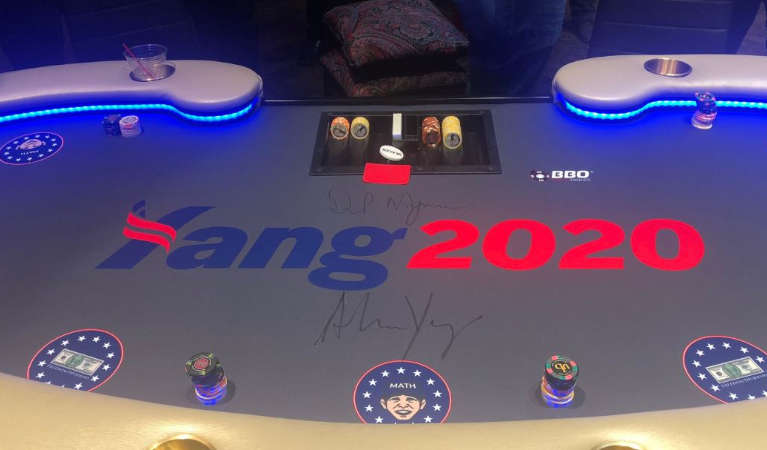Presidential hopeful and poker enthusiast Andrew Yang ended his campaign bid on February 11 unable to garner additional support to push past the Democratic in-house elections. He was the first candidate to speak on a variety of issues, including universal income, digital tax and surprisingly, the legalization of online poker.
His hint at taxing digital adds may have ruffled some feathers, but his idea to bring back online poker definitely resonated deeply with the poker community across the United States. Broaching upon an issue such as poker has definitely been in the fringe of priorities for other presidential candidates.
Arguably the lack of support for online poker on a political level has several reasons. First, no candidate can realistically garner enough support out of endorsing poker, at least not half-heartedly. In the case of Yang, though, his support was genuine.
Even then, he knew that his odds of rallying a large base of supporters behind him were unrealistic..
Secondly, poker is an issue that doesn’t have the same ramifications as funding public programs, fighting poverty, clamping down on gun violence and eliminating America’s existential foreign threats.
A Man Who Liaised with the Poker Community
Yang didn’t just hint his support for legalizing the poker segment, though – he actively pursued a course to make friends in the community and be a known face. He sat down for a chat with Daniel Negreanu, one of the best-known faces in poker.
In fact, Yang’s supporters from within the poker community never doubted their candidate – although they must have acknowledged the likelihood of Yang falling out of the race early on – and they planned a number of events that took place anyway.
On February 12, Yang tweeted that he was heading out to Las Vegas to meet up with Negreanu and Steve Aoki, a musician, for a planned celebratory event.
Despite Yang’s ambitions falling short of his pre-determined targets, the poker community will remember him fondly. Even not running for a president anymore, Yang might end in Washington D.C. nevertheless.
Regulatory Shake-ups in 2020
For the time being, states will have to decide on their own whether to go on and try to legalize the segment. So far, only a handful of states offer fully legal poker solutions, to name New Jersey, Pennsylvania, Delaware, and Nevada.
The most likely states to legalize poker in 2020 remain Michigan and West Virginia, both of which have been actively supporting the issue. Kentucky’s Andy Beshear has also been actively pushing for regulating online poker – and poker in general – as a source of additional income to help bolster the state’s purse.







